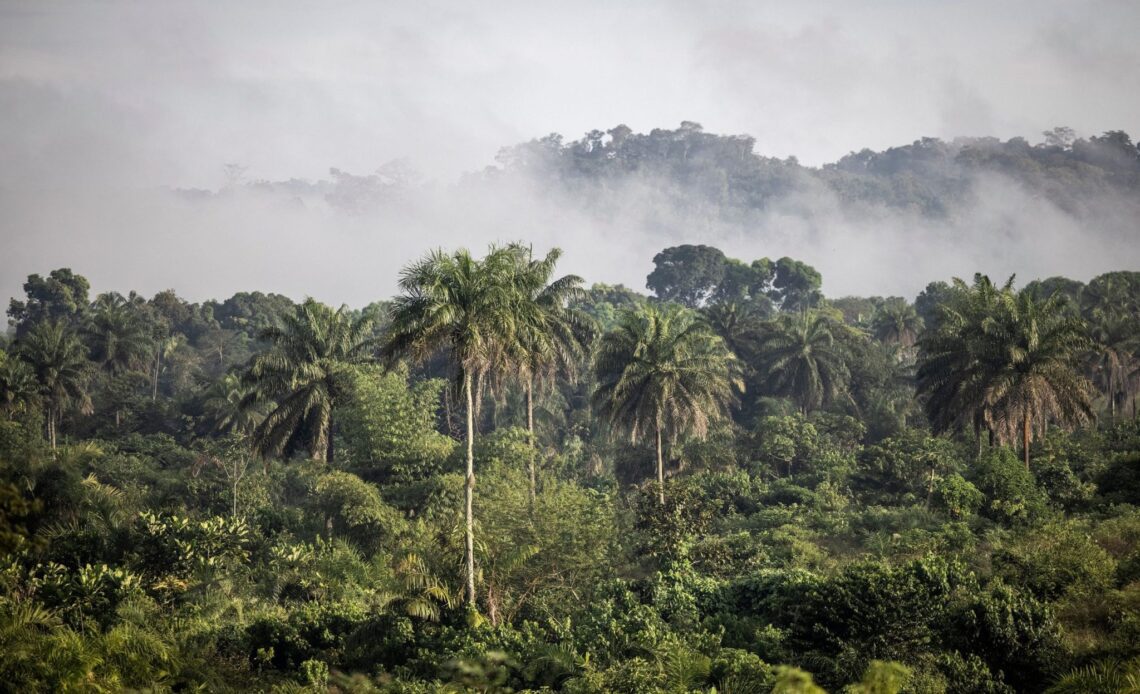Matthew Walley’s eyes sweep over the large forest that has sustained his Indigenous community in Liberia for generations. Even as the morning sun casts a golden hue over the canopy, a sense of unease lingers. Their use of the land is being threatened, and they have organized to resist the possibility of losing their livelihood.
In the past year, the Liberian government has agreed to sell about 10% of the West African country’s land — equivalent to 10,931 square kilometers (4,220 square miles) — to Dubai-based company Blue Carbon to preserve forests that might otherwise be logged and used for farming, the primary livelihood for many communities.
Blue Carbon, which did not respond to repeated emails and calls seeking comment, plans to make money from this conservation by selling carbon credits to polluters to offset their emissions as they burn fossil fuels. Some experts argue that the model offers little climate benefit, while activists label it “carbon colonialism.”
Activists say the government has no legal right over the land and that Liberian law acknowledges Indigenous land ownership. The government and Blue Carbon reached an agreement in March 2023 — months after the company’s launch — without consulting local communities, which are concerned about a lack of protections.
“There is no legal framework on carbon credits in Liberia, and so we don’t have rules and regulations to fight for ourselves as a community,” said Walley, whose community, Neezuin, could see about 573 square kilometers signed away to Blue Carbon.
A raft of agreements between at least five African countries and Blue Carbon could give the company control over large swaths of land on the continent. In Kenya, Indigenous populations already have been evicted to make way for other carbon credits projects, according to rights groups like Amnesty International and Survival International.
They have criticized the projects as “culturally destructive,” lacking transparency and threatening the livelihoods and food security of rural African populations.
“Many such projects are associated with appalling human rights abuses against local communities at the hands of park rangers,” said Simon Counsell, an independent researcher of conservation projects in Kenya, Congo, Cameroon and other countries.
“The majority had involved evictions, most were involved in conflict with local people, and almost none had ever sought or gained the…
Click Here to Read the Full Original Article at Fortune | FORTUNE…


